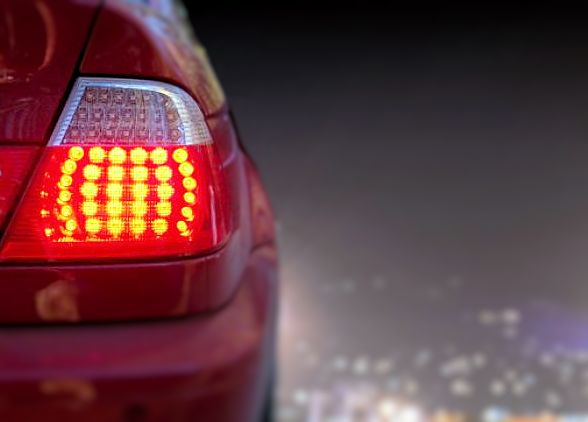Almost all of us see vehicles on the road with one brake light out at one time or another. The reason being that a huge one in 10 vehicles on the road have one or more brake lights out.
Brake lights can fail at any time and as most vehicles don’t self-check such issues, we can quite easily use our cars for many days, even weeks without realising. It’s a little too easy to blame the car however, for the most part, that’s simply put down to the fact that generally we don’t check that our brake lights are working and perform enough basic maintenance checks on our cars.
Dangers of faulty brake lights
Over 25,000 accidents each year are attributed to drivers misjudging the speed of a vehicle. This is often due to a vehicle slowing down rapidly. All these accidents aren’t the result of missing brake lights of course, although defective brake lights will have an impact on a following drivers reaction time to your slowing down or stopping.
Centre high brake lights are equally important especially for those that prefer to drive behind vehicles closely, often seated high in vans. Tail-gating is dangerous in itself, but those that do may not notice the side brake lights as easily as the centre high brake light as it is often situated much higher than the side brake lights.

Ensuring all brake lights are working including the centre high light ultimately helps in avoiding potential accidents. How to check brake lights are working
To check that your brake lights are working correctly, simply ask a friend or family member to help or check for reflections. You can often see enough of a reflection to determine all brake lights are working whilst testing them whilst parked in your garage, you may be able to see your cars rear end reflection in many buildings.
How often should brake lights be checked
Many drivers have their car brake lights checked just once each year and this usually involves the services of an MOT technician. Brake lights are not only for the drivers safety, but those following and to be reasonably sure that brakes lights are continuously working correctly, they should be checked and covers cleaned if necessary at least once each week. For further information on a car MOT, see:
Difficulty changing brake light bulbs
In certain modern cars, brake light bulbs can be difficult to change with a new bulb. This is especially noticeable in modern compact cars where everything ‘unnecessary’ such as brake light housing is crammed out of the way into tiny spaces to make way for luggage space.
A little perseverance and time is all it usually takes, but if it does become an impossibility, car maintenance stores such as Halfords or even your local car service garage will fit the bulb for you. Although inconvenient and a small fee will likely apply, you’ll be sure to know your car is safe and legal and is a far better alternative to receiving a fine and penalty points from authorities due to driving a vehicle with faulty lighting.
No brake lights penalty
With defective vehicle lighting, the penalty incurred is a combination of the severity of the offence and the discretion of the police officer. If you have a single brake light out for example and the police officer is of reasonable mind, they may simply pull you over and give you a verbal warning to get it fixed as soon as possible.
A brake light bulb can fail at any time, the chances are however that if you have more than one brake light out, a police officer will come to the conclusion that a driver has simply not checked that their brake lights are working for a considerable time, which is where penalties are likely to become harsher.
-
Fixed Penalty Notice
A driver is likely to be issued with a Fixed Penalty Notice (FPN) that will see a motorist issued with a £60 fine and three penalty points on their driving licence.
-
Roadside Prohibition Notice
If the police officer deems the vehicle defect as severe, they may also issue a Roadside Prohibition Notice. A Prohibition Notice varies depending on the severity of the defect. An immediate prohibition comes into effect immediately which will see a drivers vehicle immobilised and unable to drive. A delayed prohibition which is the probable notice issued under such defects as defective brake lights, allows for the vehicle to be driven away and the fault(s) must be fixed within 10 days. The vehicle will need a reinspect and the prohibition removed before it can be used on the road again.
Guides related to car lights and the law
[ul type=arrow-right-4]

What if brake lights WERE checked at the beginning of the journey and were found to be satisfactory but the bulbs must have blown DURING the journey? A lawful reason?
If you had proof that your lights were checked prior to that particular journey, say from a garage for example, then you might have a case to argue, but if it’s simply your word that you checked them, then it would be a case of accepting any penalty points a fines.
Hi
I have stopped by police for that reason but I didn’t get any ticket from them. Should I wait for letter from Police or I have to ring somebody?
Hello Tristan,
The police will usually advise that they intent to prosecute at the scene, but for something like a brake light being out, they will normally issue you with a vehicle defect rectification notice in which you need to have the defect rectified within 2 weeks. Did the police not give an indication on what they were going to do? Seems a little strange if they didn’t.